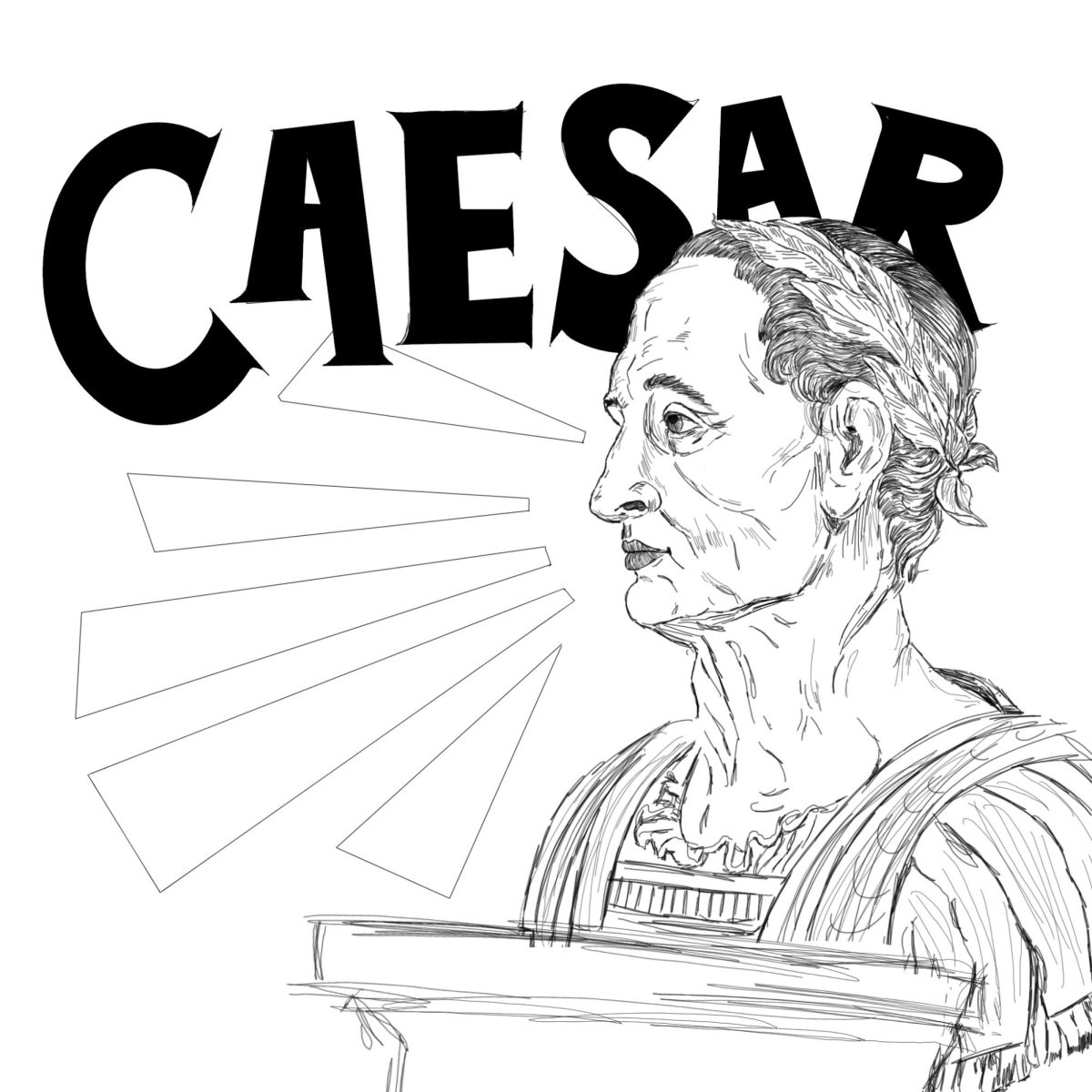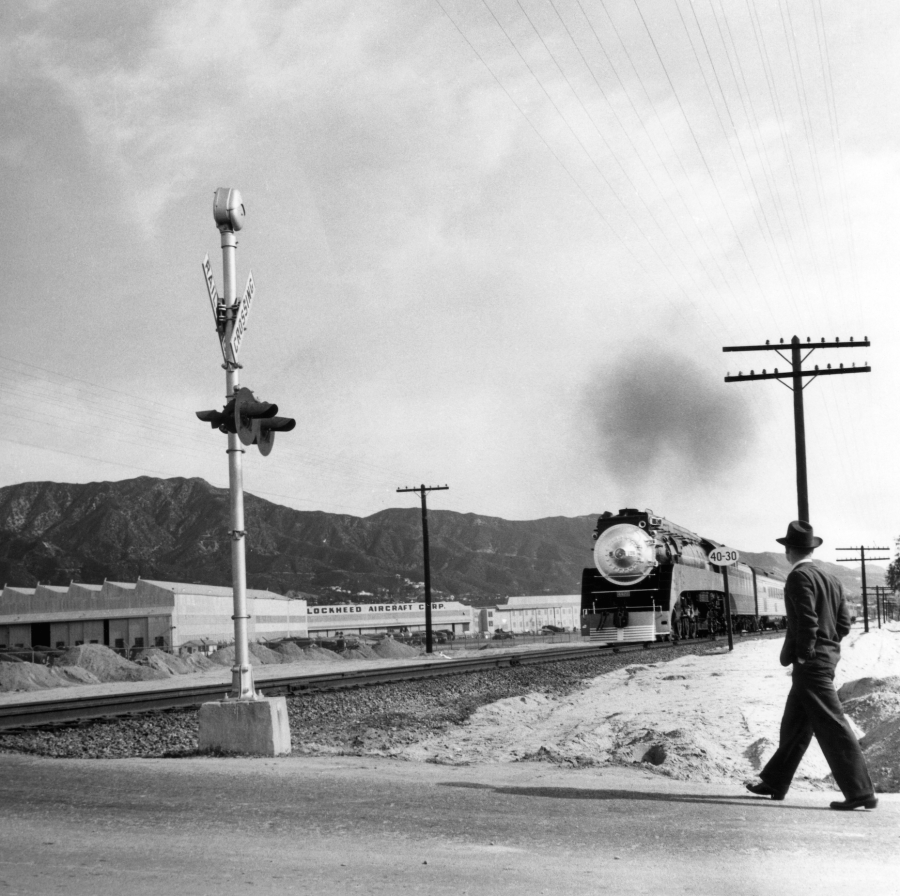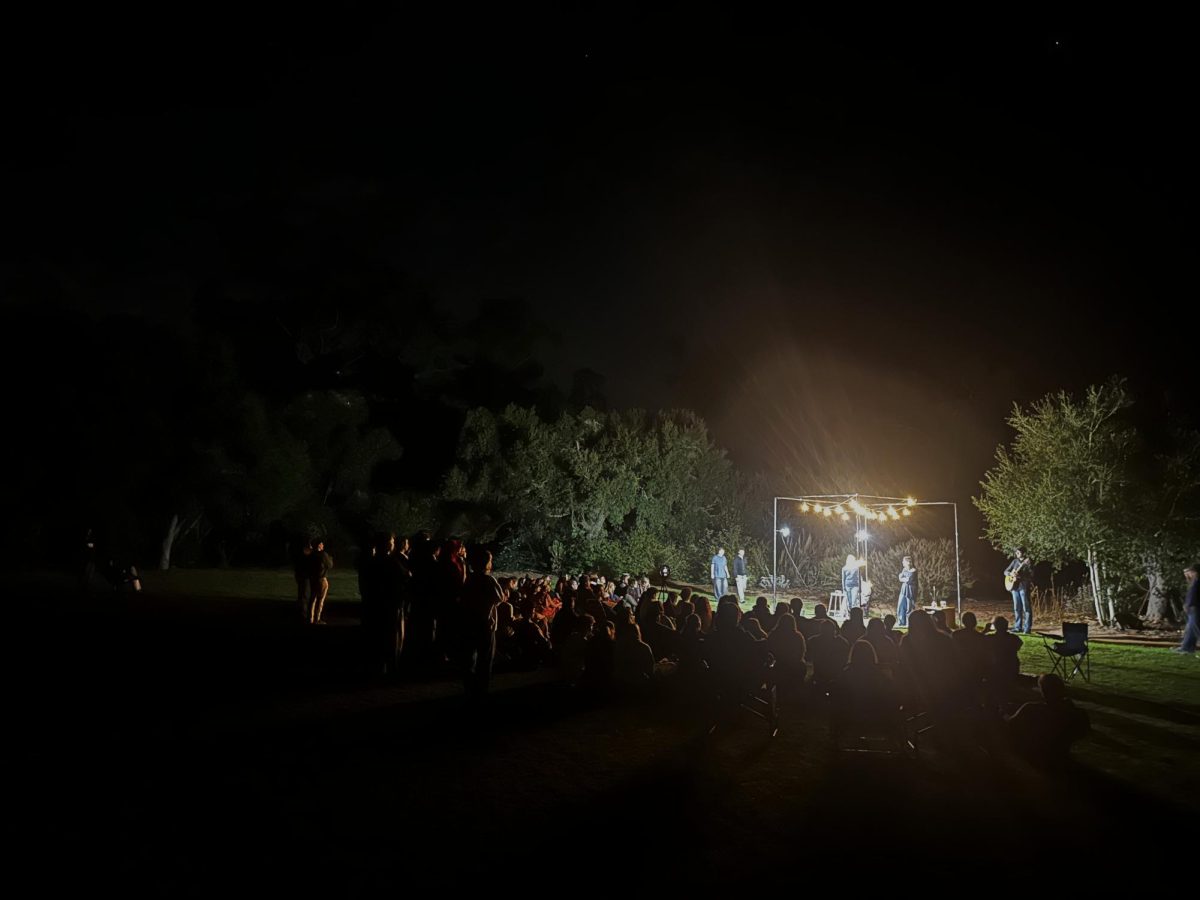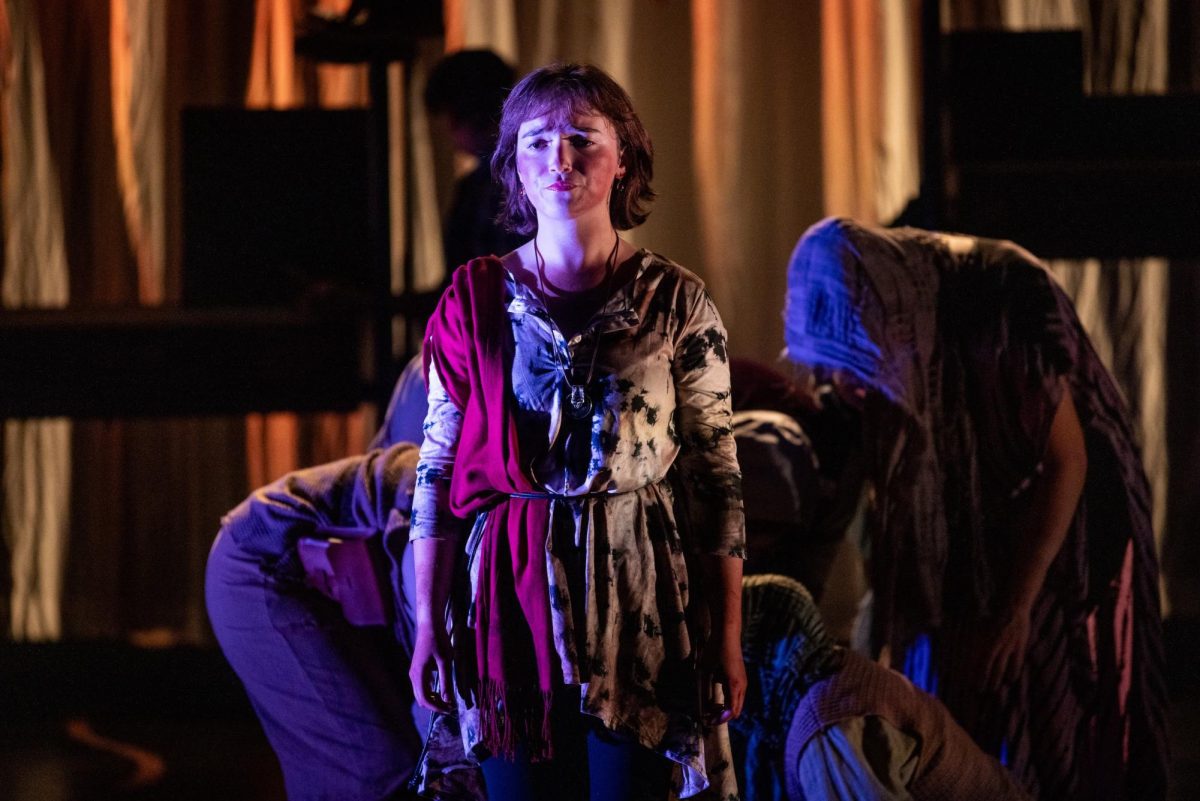In 1937, observing the rise of fascist Italy and Germany, Orson Welles and his Mercury Theater Co. strove to jar an isolationist public into action. Their re-arrangement of Julius Caesar sharpened Shakespeare’s script into a harrowing warning of the power of the mob. Staged on a bare stage of red brick, with a small platform raising orating Romans in Nuremberg-esque fashion above the audience, the production was hailed as a tour-de-force. For the New York Post, critic John Mason Brown wrote: “the touch of genius is upon it.”
It is with this script that the Independent Shakespeare Company armed itself for their production of Julius Caesar, staged as part of their Summer Shakespeare Festival near Griffith Park’s Old Zoo. The production space was a small stage set at the bottom of a rolling green hill, with the audience seated in lawn chairs and on blankets in a loose amphitheater around the stage. It was bare, with only a few blocks providing places to sit and stand and two television screens on the proscenium, surveying the crowd below.
These televisions pushed home director David Melville’s thesis: the power of the mob is to be feared. Opening the show, Cinna the Poet invited us to chant along with words flashed across the screens. Caesar picks his way through the audience at the top of the show, a conquering hero home from afield, and we chanted “Hail Caesar” in greeting. When a brilliant Hiwa Chow Elms as Marc Antony (a brilliant performance that alone deserves another article) whipped the crowd into a frenzy against the assassins, we screamed death to the traitors.
However, the televisions should not be misconstrued as the main players onstage. Though Welles shaved and sharpened the play, the moral heartbeat (or lack thereof) still courses through stiff yet intense Brutus, played by a ramrod-straight William Elsman. There’s a subtle difference between Brutus, whose intensity is quiet and underwhelming, and Elsman, who doesn’t totally clear this bar. Stoic and stiff are confused, and the moral power of the show suffers for it. So, when a slimy and thoroughly repulsive Cassius (Sabra Williams) eventually convinces Brutus to participate in the assassination, the tension of Brutus’s moral dilemma is far less fraught than it needs to be. He is intense and compelling enough to keep us in our seats but not as convincing as I wanted him to be.
No, the tension lies here not in dramatic soliloquy but in the diamond-cut messages Melville sought to create surrounding the danger of the mob. And nowhere is this more apparent than in the murder of Cinna the Poet.
Cinna was a voice of youthful innocence, played to a tee by Kelvin Morales, as lively, creative and likable as could be. In Welles’ initial production, his death became the production’s de facto climax, “an extraordinary scene [that] gripped the audience… that the show stopped for about three minutes.” (Norman Lloyd, who played Cinna the Poet in the 1937 production). So, too, last June in Los Angeles. We, a group of regular patrons enjoying a night at the theater, had gladly chanted the death of a character we had all grown rather fond of. My pulse quickened, the air on the hillside grew heavy, and I looked around and realized that we had all become contributors, players within the world of the show. We, too, were guilty of Cinna’s death; we were swept off our feet, in lockstep with the fellow to the left and the television screens above.





